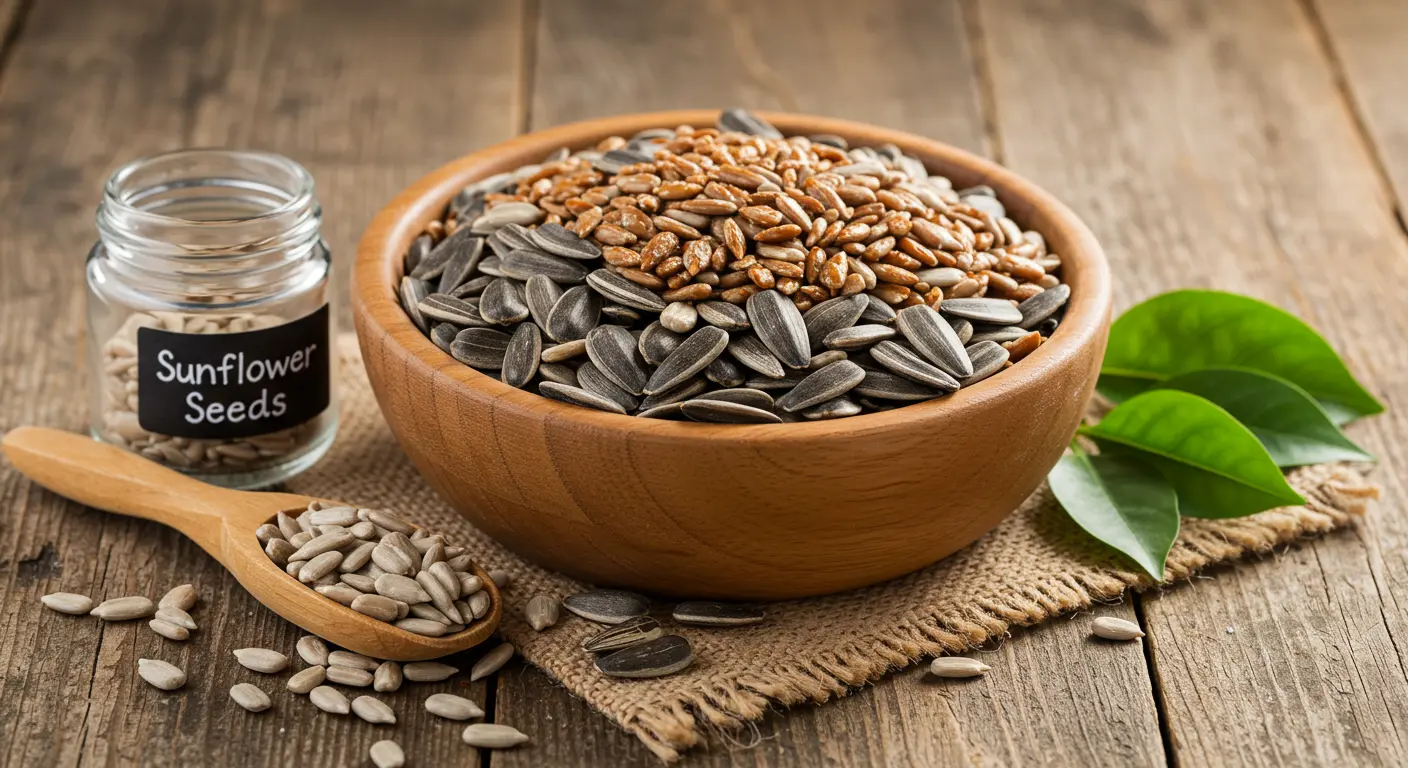Sunflower Seeds for Diabetes: Are They a Healthy Choice?

Are Sunflower Seeds Good for Diabetes? Sunflower seeds are increasingly recognized for their potential benefits in managing diabetes. This article explores the relationship between sunflower seeds and diabetes, highlighting their nutritional profile and how they can be incorporated into a diabetic-friendly diet.
Nutritional Benefits of Sunflower Seeds
Sunflower seeds are packed with essential nutrients that can be beneficial for individuals with diabetes. They contain high levels of:
- Vitamin E: An antioxidant that helps protect cells from oxidative stress, which is crucial for heart health, especially for diabetics who are at higher risk of cardiovascular diseases.

- Magnesium: This mineral plays a significant role in insulin secretion and glucose metabolism. Higher magnesium intake is linked to a lower risk of developing type 2 diabetes.

- Selenium: Another important mineral that may help reduce the risk of type 2 diabetes by improving insulin sensitivity.

The combination of these nutrients makes sunflower seeds a valuable addition to the diet of those managing diabetes.
How Sunflower Seeds Help Manage Diabetes
Blood Sugar Regulation
Research indicates that sunflower seeds can help regulate blood glucose levels. A study found that individuals consuming sunflower seeds experienced a significant decrease in fasting blood glucose levels over time. Specifically, those who included sunflower seeds in their diet showed a reduction from 186.2 mg/dl to 109.9 mg/dl, compared to a less significant change in the control group.
Antioxidant Properties
The antioxidants found in sunflower seeds, particularly vitamin E, help combat oxidative stress, which is prevalent in diabetic patients. By reducing oxidative damage, sunflower seeds may contribute to better overall health and improved glycemic control.
Anti-Inflammatory Effects
Sunflower seeds contain compounds that may have anti-inflammatory properties. Chronic inflammation is often associated with insulin resistance and type 2 diabetes, making these seeds a beneficial food choice for managing these conditions.
Tips for Including Sunflower Seeds in Your Diet
Incorporating sunflower seeds into your daily routine can be both simple and enjoyable. Here are some practical tips:
1. Start Your Day Right
Add sunflower seeds to your breakfast by mixing them into oatmeal or yogurt. This not only enhances the flavor but also provides a nutritious start to your day that can help stabilize blood sugar levels.
2. Healthy Snacking
Replace unhealthy snacks with sunflower seeds. A handful of roasted or raw sunflower seeds can satisfy your hunger while providing essential nutrients without causing spikes in blood sugar.
3. Creative Cooking
Incorporate sunflower seeds into your cooking. They can be blended into smoothies, added to stir-fries, or used as a crust for fish or chicken. Their nutty flavor complements many dishes while boosting nutritional content.
4. Homemade Energy Bars
Consider making homemade energy bars using sunflower seeds as a base ingredient. Combine them with oats, nut butter, and dried fruits for a nutritious snack that’s perfect for on-the-go energy.

5. Experiment with Flavors
Try different flavors by seasoning your sunflower seeds with spices like paprika, garlic powder, or cinnamon before roasting them at home. This adds variety and keeps your snacks exciting.
Exploring the Nutritional Power of Sunflower Seeds
Sunflower seeds are not only a delicious snack but also a powerhouse of nutrition that can significantly benefit those managing diabetes. According to a detailed article from The Sourdough School, these seeds are rich in essential nutrients such as vitamin E, magnesium, and selenium, which play crucial roles in heart health and insulin sensitivity. Vitamin E acts as a potent antioxidant, protecting cells from oxidative stress, while magnesium is vital for insulin secretion and glucose metabolism
Understanding Portion Control
While sunflower seeds offer numerous health benefits, it’s essential to practice portion control due to their calorie density. A typical serving size is about one ounce (approximately 28 grams). This portion provides a good balance of nutrients without excessive calories, making it suitable for those monitoring their weight as part of diabetes management.
Potential Allergies and Considerations
Before adding sunflower seeds to your diet, it’s important to consider potential allergies or sensitivities. Some individuals may experience allergic reactions to sunflower seeds or their derivatives. If you have known allergies to other nuts or seeds, consult with a healthcare provider before incorporating them into your diet.
Additionally, while sunflower seeds are healthy, they should not replace other vital food groups in your diet. Aim for a balanced approach that includes various fruits, vegetables, whole grains, lean proteins, and healthy fats.
Final Thoughts on Sunflower Seeds and Diabetes
In summary, sunflower seeds are indeed good for diabetes management due to their rich nutrient profile and potential health benefits. They can help regulate blood sugar levels, provide essential antioxidants, and may reduce inflammation. Including sunflower seeds in your diet not only enhances your meals but also supports your overall health as you manage diabetes.
By incorporating sunflower seeds regularly into your diet—whether as snacks or meal additions—you can leverage their health benefits while enjoying their delicious taste. Remember to maintain portion control and explore various ways to enjoy these nutritious seeds as part of a balanced diet tailored to your needs.



